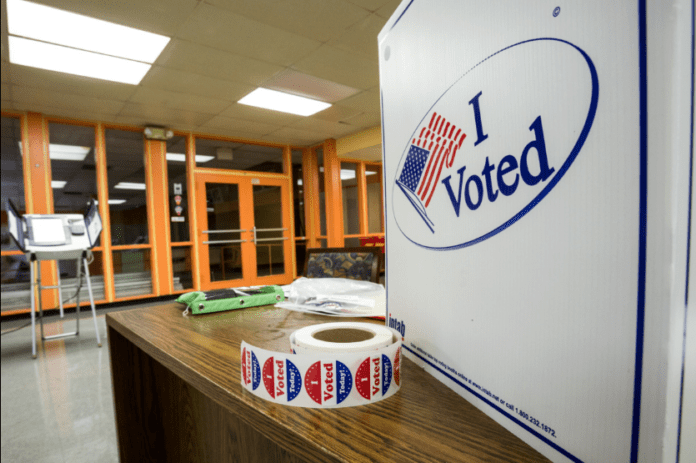By Cole Bradley, High Ground News
As many Memphis residents lament a lack of mayoral debates, BLDG Memphis is taking a different approach to capturing candidates’ policy plans for the public record.
“We hope to get a commitment from anyone who’s potentially going to be in office for the next four years that we will be growing resources for community development work in neighborhoods across Memphis,” said BLDG Memphis’ executive director, John Paul Shaffer.
On Saturday, September 7, Shaffer and his team sent links to the BLDG Memphis 2019 Memphis City Candidate Questionnaire to all 64 Memphis mayoral and city council candidates. The survey will remain open for responses until the end of early voting.
Early voting runs September 13-28. Final voting and election day are October 3.
BLDG Memphis plans to make candidates’ responses available to the public as they are submitted.
Candidates were contacted by email or Facebook where available. Candidates were also sent notice by mail to their home addresses. Candidates who did not received an electronic link and would like one can contact engage@bldgmemphis.org.
The 2019 Memphis City Candidate Questionnaire consists of three questions.
The first asks candidates if they support the newly established Memphis Affordable Housing Trust Fund and support increasing the fund from a recurring source for long-term sustainability.
The newly created trust fund will spend $1 million in its first year to address owner-occupied home repair and single-family home renovation for re-sale and rent to families earning less than 80% of the area median income. There’s flexibility to address other housing needs like affordable multifamily units in the future.
Related: “Podcast: An affordable housing trust fund for Memphis”
The second and third BLDG Memphis candidate questions address transportation and safety.
The first states that Memphis is the most dangerous city in Tennessee for pedestrians and asks how candidates will address safe streets across all modes of transportation.
The final question notes that Memphis 3.0’s new Transit Vision calls for a $30 million annual increase in public transit funding for an expanded network of higher-frequency routes. It then asks candidates if they will support efforts to find the necessary funding to implement the Transit Vision and serve Memphis neighborhoods more effectively.
Shaffer said polling not just mayoral candidates but city council candidates too was especially important because even without formal debates, mayoral candidates receive more focus and a bigger platform to express their positions. City council candidates, on the other hand, get less attention and aren’t asked to articulate positions or policies as frequently.
As a result, the council competition often comes down to name recognition.
“We’re putting these questions out there for candidates running for local office to just get a sense of where they stand on these two issues that are very important to our membership and our network,” said Shaffer.
BLDG Memphis is comprised of a coalition of local organizations, including 28 nonprofit community development corporations working in neighborhoods across Memphis and 20 supporting agencies in the economic development and financial sectors.
BLDG Memphis does not endorse or provide financial resources to candidates for public office, but it has been working to expand its policy work to reflect its members’ biggest ongoing concerns in their communities’ development.
Housing and transportation are consistently among those concerns.
The organization felt a non-partisan questionnaire could provide unbiased information to their members and the public.
“BLDG Memphis members are mostly made up of community development corporation leaders, neighborhood leaders, individuals in the community. They’re representing different neighborhoods and community groups from Raleigh down to Whitehaven,” said Amy Schaftlein, executive director of United Housing, a BLDG Memphis coalition member.
United Housing developed the candidate question regarding the affordable housing trust fund. United Housing’s work centers on improving access to quality affordable housing in Memphis and they believe the trust fund is a critical step towards investing in the city.
“It’s time for the city to say, ‘We do know that poor housing has caused many other areas of our city’s [living], health and public safety costs to increase,'” said Schaftlein.
Shaftlein said that the current $1 million allotment for the trust fund can only fund renovation and building for around 18-20 houses, which is why the question posed to candidates asked if they would support expanding the trust fund.
“While we’re super excited about the creation of a housing trust fund and having it funded this year, there’s still a lot more that needs to be done that that’s not going to cover,” she said.
Shaffer and Shaftlein both said they hope all candidates will respond to the questionnaire so their positions are on record and BLDG Memphis’ city-wide membership and all of the voters they represent can hold future leaders accountable to the promises they make today.
“[BLDG Memphis’ membership] is a very diverse group, but we all have one thing in common and that is we love our neighborhoods, we love our city,” said Shaftlein.
“We want to make sure that the things we think can move us forward are being discussed and brought to the forefront of discussion and the election. It’s important work and we want to hold everyone who is elected accountable to what they say they’re going to support.”
Visit the Memphis Public Library’s Informed Voter pages here to learn about the races and candidates in Memphis’ upcoming election and encourage their participation in the BLDG Memphis housing and transit survey.



